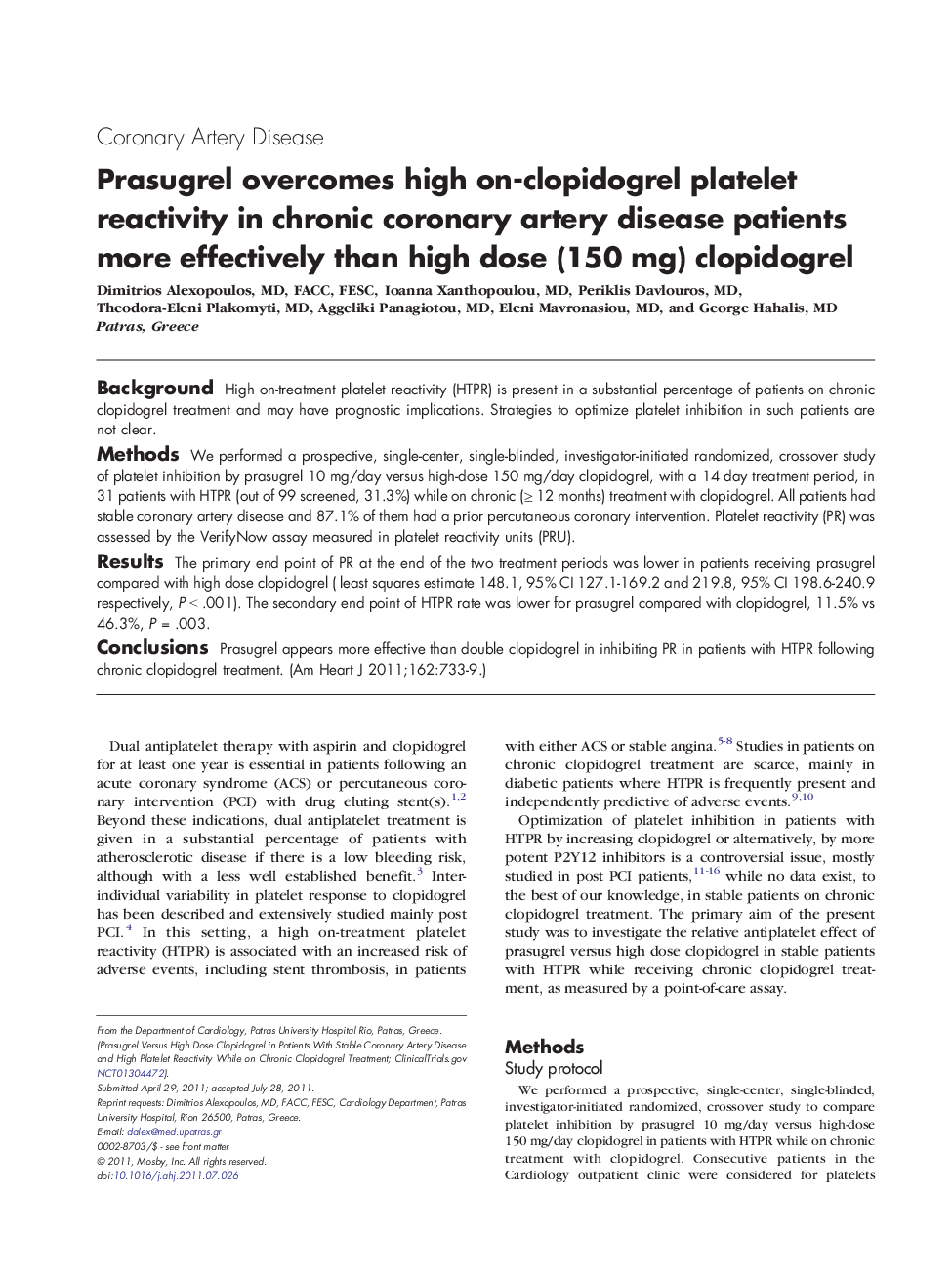| Article ID | Journal | Published Year | Pages | File Type |
|---|---|---|---|---|
| 2850242 | American Heart Journal | 2011 | 7 Pages |
BackgroundHigh on-treatment platelet reactivity (HTPR) is present in a substantial percentage of patients on chronic clopidogrel treatment and may have prognostic implications. Strategies to optimize platelet inhibition in such patients are not clear.MethodsWe performed a prospective, single-center, single-blinded, investigator-initiated randomized, crossover study of platelet inhibition by prasugrel 10 mg/day versus high-dose 150 mg/day clopidogrel, with a 14 day treatment period, in 31 patients with HTPR (out of 99 screened, 31.3%) while on chronic (≥ 12 months) treatment with clopidogrel. All patients had stable coronary artery disease and 87.1% of them had a prior percutaneous coronary intervention. Platelet reactivity (PR) was assessed by the VerifyNow assay measured in platelet reactivity units (PRU).ResultsThe primary end point of PR at the end of the two treatment periods was lower in patients receiving prasugrel compared with high dose clopidogrel ( least squares estimate 148.1, 95% CI 127.1-169.2 and 219.8, 95% CI 198.6-240.9 respectively, P < .001). The secondary end point of HTPR rate was lower for prasugrel compared with clopidogrel, 11.5% vs 46.3%, P = .003.ConclusionsPrasugrel appears more effective than double clopidogrel in inhibiting PR in patients with HTPR following chronic clopidogrel treatment.
